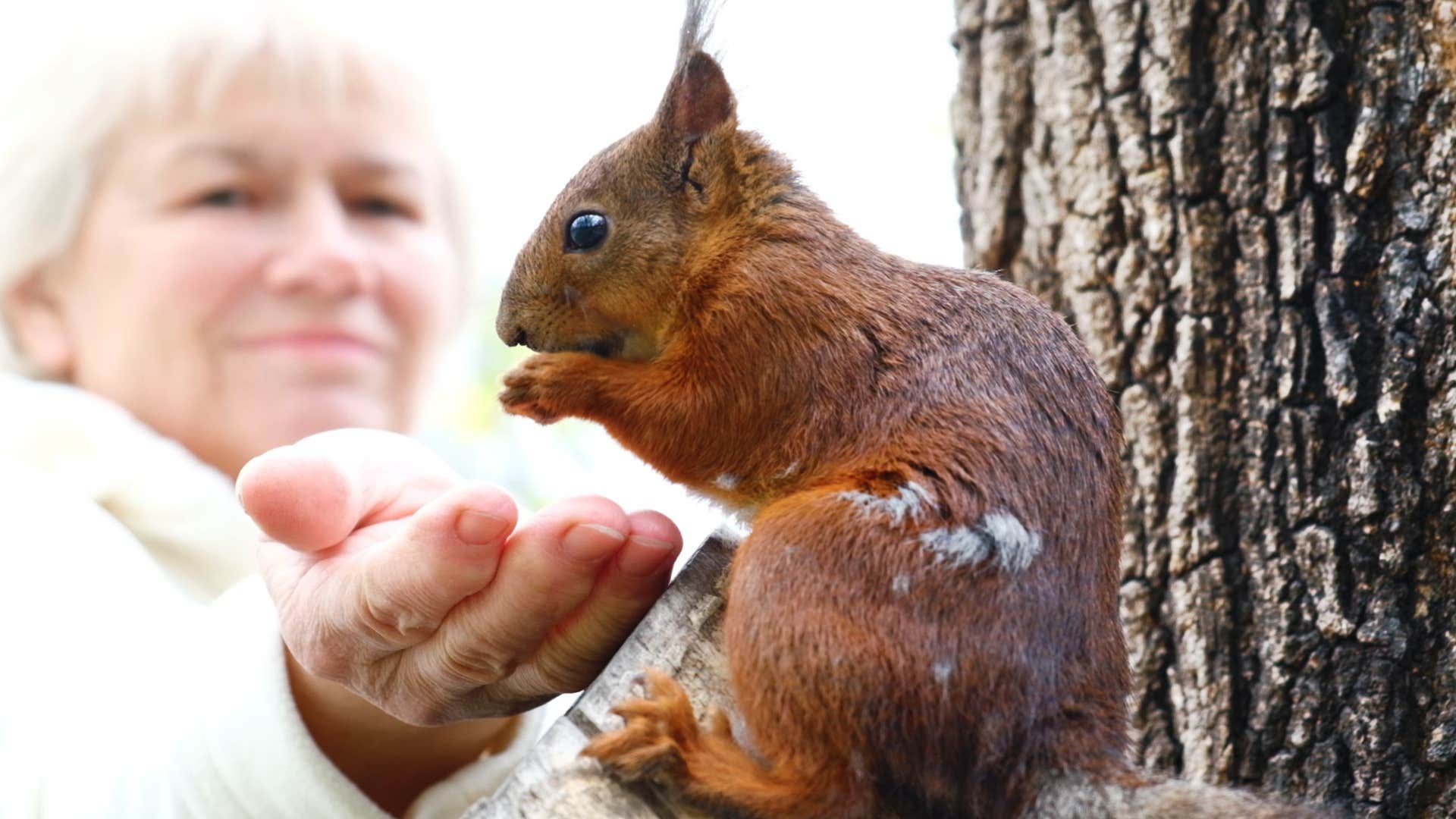7 Behaviors Of Peaceful People Who Live Well Despite Not Having Much
True peace is a gift for everyone.
 stockfour | Canva
stockfour | Canva Perhaps you have held in your mind that someday, you'd get a little more connected to the natural world. You would finally know a bit more about it, and even do some things to protect it. Well, that time is now — how to be a peaceful person who lives well, connected to nature.
The Earth, in its multitude of environmental issues caused by humans, is ready for us to become intimate and knowledgeable of its workings, needs, and beauty. To protect and preserve, you need to be in relation with nature, so you know the importance beyond just the theoretical. Intimacy brings an authentic relationship that forms a bond of mutuality.
Getting outside gives you exercise, and much-needed fresh air to expand and nourish your lungs. It has been proven that beyond physical health, walking and getting outside can serve as a natural antidepressant with no side effects — meaning it improves your emotional regulation and mood. The early conservationist and writer John Muir said, “Going out, I found, is going in.”
Here are 7 behaviors of peaceful people who live well despite not having much:
1. They feel deeply rooted in nature
 Nicoleta Ionescu / Shutterstock
Nicoleta Ionescu / Shutterstock
Of course, you'd love to steep yourself in the wildness of national parks, but it’s not always possible. The beauty of nature is that it fills the void and grows in even the most unlikely places — cracks in the sidewalks and neighbors’ neglected yards.
Do you know what’s growing in your yard? Your neighborhood? What’s that tree called that you see every day? You may have just met a new neighbor friend that you can say "hi" to from now on!
2. They take genuine interest in plants and animals
 ElenaEmiliya / Shutterstock
ElenaEmiliya / Shutterstock
As you encounter plants and animals on your journeys outside, welcome the curiosity that comes to your mind. What do those ground squirrels like to eat?
Do they collect nuts for winter? What are they up to right now? Knowing what the animals eat opens the door to understanding the intricate web of local life. Consider keeping a journal that details each creature you discover as you go. Have a goal of one a day or week — whatever works for your schedule.
Your journal may contain drawings, pressed plant leaves and flowers, as well as the research that you discover. This connection is rooted in how nature inspires positive emotions, reduces stress, and fosters a sense of interconnectedness. Research suggests that individuals who feel more connected to nature report higher levels of happiness and life satisfaction.
3. They honor the first people of their land
 ArtOfPhotos / Shutterstock
ArtOfPhotos / Shutterstock
While walking nearby the other day, I noticed the park’s placement of information plaques with useful facts. Before, I always just zoomed by while on my bike. But I decided to take a closer look.
On the plaque was the name of the original inhabitants of the land I lived on — the Aramai, a tribe of the Ohlone who existed here for over 3,000 years. I learned how they used the native Arroyo Willow for medicine, thatched houses, and baskets.
Learning how the original natives lived on the land can awaken your knowledge of the many plant and animal species, as well. Building your intimacy with nature is a way to honor and respect the original inhabitants. Many still exist today in the same areas of their ancestry.
4. They dig into the world they live in
 leungchopan / Shutterstock
leungchopan / Shutterstock
A few tools can help make your newfound intimacy exploration come alive. The camera on your phone can capture the beauty of newfound discoveries without having to touch or disturb the specimen.
Binoculars, particularly for my near-sighted eyes, can bring the flight of a bird and its unique character close enough for me to view it in exquisite detail.
A guidebook or app can help you to identify the things you get curious about and quickly pinpoint the species of plants or animals. A quick search on the internet can also do the trick.
Having trouble getting outdoors in the first place? I find a naturally-themed deck of cards can help spur your interest, like a scavenger hunt.
An article by the American Psychological Association (APA) explained that the ability to use tools for exploration can contribute to empowerment and resourcefulness. By exploring and engaging with the world, individuals may discover new opportunities, learn valuable skills, and build resilience.
5. They awaken their spirituality
 insta_photos / Shutterstock
insta_photos / Shutterstock
Spirituality is a vital aspect of your experience as a human in a universe massive in scope and full of mystery. Nature can ground your spiritual connection and make it visible to you in your daily life.
The workings of nature are autonomous and happen independently from you. Yet, your experiences can reveal your nature in meaningful ways. Aligning your life with the rhythms of nature can help you feel woven into a universal fabric larger than your own making or understanding.
Become aware of the moment when dawn arises and when the sun sets. What is the exact middle place in between? When is the moon full and new? How does it affect the tides?
Which way is each direction from your house? How are the classic four elements showing up in this moment — earth, air, fire, and water?
6. They learn to read nature's signs
 Pheelings media / Shutterstock
Pheelings media / Shutterstock
I have always thought myself to be fairly familiar with all forms of divination — from tarot cards and runes to the I Ching, and even cowry shells from West Africa.
In my recent studies of nature and spirituality, however, I have stumbled upon "augury" — the reading of signs and omens in one’s environment. This may be the numbers or flight patterns of birds, or the colors and forms found in the natural landscape.
Though I am not prone to superstition, learning how ancient societies “read” nature can pull you into a different, more intimate dialogue with your surroundings.
While direct research on 'nature divination' is scarce, there's a strong and growing body of evidence about the benefits of connecting with nature. This connection is especially helpful for psychological well-being, even for those facing adversity or financial hardship.
7. They give back
 NXTLVLSTCK / Shutterstock
NXTLVLSTCK / Shutterstock
You get so much from nature. You're fed from its fruits and oxygenated by its trees and plants. You're held by its firm foundation. As you deepen your intimacy with nature, finding ways to give back will help you feel even more connected.
This may take a different form for each person, but what's important is to find your way to give. This isn’t about guilt-tripping you to recycle or drive less. It’s about giving something back that helps you to truly feel a mutual relationship between you and the Earth.
For me, that means bringing a bag on every walk. When I see a piece of trash, I pick it up! It gives me so much to see the beautiful place I live look a bit better, and for one less piece of plastic to head to poison an animal's belly or pollute the ocean's current.
Perhaps the ideas above have sparked your calling to explore and relate in the outside world. I hope you can find a space of timelessness and open discovery as you head out on your adventures.
When exciting or interesting encounters happen out there, tell your stories to friends and neighbors — they may just wish to join in this new neighborhood discovery.
Cyndera Quackenbush is a writer, intuitive storyteller, and certified card-reading consultant.

